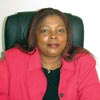
Investing in intergenerational dialogue between influential women leaders and girls is a critical enabler for unlocking innovative solutions to broader challenges of women’s health, sexual and reproductive health and rights and development.
Opinion by Lois Chingandu
In their journey to womanhood, young girls experience similar ambitions and adversities that older women went through and understand.
However, due to the changes in our social fabric in Africa, cultural institutions that used to be spaces for sharing experiences and mentoring for girls no longer exist.
What makes it even more challenging for girls is that our cultural practices are wired in such a way that it is difficult for young girls to discuss their issues with their parents.
This comes with serious implications as what girls are not told are important lessons for their personal development.
While in the history of the Aids response there have been greater results, and many obstacles to overcome, in order for the path to be clearer, young women should be placed at the centre of the Global Aids response.
According to the latest UNAIDS World Aids Day Report, results “in 26 of 31 countries with generalised epidemics in which nationally representative surveys were recently carried out, less than 50% of young women have comprehensive and correct knowledge about HIV”.
- Chamisa under fire over US$120K donation
- Mavhunga puts DeMbare into Chibuku quarterfinals
- Pension funds bet on Cabora Bassa oilfields
- Councils defy govt fire tender directive
Keep Reading
Gender inequality thus still remains a key driver of the HIV epidemic.
Despite all the efforts and results for people, young women still face barriers in accessing HIV prevention, treatment and care services due to limited decision-making power, lack of control over financial resources, restricted mobility and child-care responsibilities.
Often, violence and the threat of it hamper women’s ability to protect themselves from HIV infection and/or to assert healthy sexual decision-making.
The Southern Africa HIV and Aids Information Dissemination Service (SAfAIDS) cognisant of the prospects and impediments of results for young women, will bring together women leaders and girls to a women public sphere to stimulate dialogue and debate on gender, sexual and reproductive health and rights and development.
Various panels will discuss ways to capitalise on the experience of both old and young women and advance strategic and ground-breaking thinking on women’s empowerment and how to translate that to community level action in alignment with regional, continental and global priorities for women, girls, HIV and sexual and reproductive health and rights.
The meeting, which will be attended by women only, will provide a platform for storytelling and deeper reflection on what growing up, sexuality, health and development mean for real young women negotiating their way in a complex world.
The dialogue which is expected to come up with an action plan will also focus on accountability for health outcomes for women at different levels with the community as the starting point.
The meeting will utilise the Harare Call to Action as a reference point with specific focus on its call for unified action for women’s health with specific focus on sexual and reproductive health and rights in the context of HIV.
The Harare Call to Action resulted from the inaugural GlobalPOWER Africa Women Network meeting in May 2011 that brought together women political, cultural and traditional leaders, as well as civil society.
The Call to Action aims to serve as an important political and advocacy tool, strongly promoting regional ownership and shared responsibility to advance the Aids response and the wider gender equality agenda.
- Lois Chingandu is SAfAIDS executive director.











